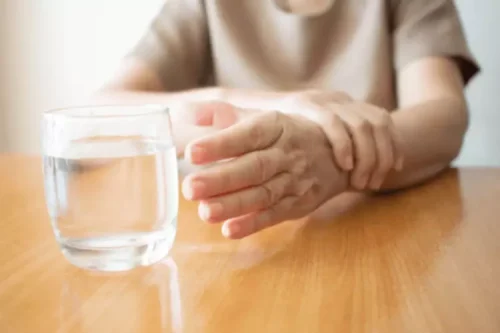Should I Go Back To Rehab After A Relapse? Elevate Addiction Services

When someone relapses, they either did not receive the effective principles of treatment or stopped using their recovery maintenance techniques. To define relapse simply, this occurs when you return to using drugs after a period of abstinence. However, understanding what the success factors of treatment are can help you better understand relapse as a whole. You can also call us at and connect with a person who can help locate suitable rehab programs and verify your insurance benefits. You, nor your loved one, are under any obligation to commit to a Treatment X treatment program when calling the helpline.

Take the First Step Today
- But recovery isn’t a straight line; it’s a path with plenty of zigs and zags.
- Get plenty of rest, and you will have more energy to socialize, so you won’t feel lonely.
- Jeffrey’s current role as supervisor for one on one counseling allows him to spend time with each client in a one on one setting.
- Many people think that relapsing after completing rehab is evidence of failure, either on the part of the program or the individual.
- Having to return to rehab should not be considered a failure, but rather an act of courage.
After the pink cloud dissipates and the optimism wears off, or life throws you a curve ball, a strong recovery is what will hold you up, not the good feelings engendered by being newly sober. However, if you have returned to old habits and are using drugs and/or alcohol, a residential treatment program may be a better option for you. Call us today for a risk-free consultation and to learn about your rehab options. On the other hand, you may be relapsing when you struggle to manage your drug and alcohol use.
How Do I Stay Sober After Rehab?
They going back to rehab can help you determine how to pay for rehab by either using health insurance to cover addiction treatment or other payment options. Addiction relapse is a challenging and emotional experience but it does not have to define your recovery journey. By understanding the common triggers, recognizing the warning signs, and implementing effective strategies, you can take proactive steps to prevent relapse and maintain your hard-earned sobriety. If you’ve been using substances again, you may need to go through detoxification. Detox is the process of clearing drugs or alcohol from your system and managing withdrawal symptoms.
You’re trying to do it alone.

Since there is no “cure” for addiction and because those in recovery sometimes encounter setbacks, you may find yourself entering rehab a second, third, or fourth time. Try not to assume that because you’ve relapsed that treatment doesn’t work or that you’ve reached the end of the what is alcoholism road. Instead, recognize it as a sign that some more work needs to be done and embrace it as an opportunity for continued self-improvement. Once you’ve identified the who, what, where, and why of your relapse, it’s a good idea to consider alternative actions you could have taken instead. Instead of blanket promises that you’ll never do A or B thing again, it’s better to come up with contingencies in the (very real) likelihood that you won’t always have a willpower of steel. Use this to create a relapse prevention plan for the future and share it with your support system.
- After completing a drug and alcohol treatment program, an individual’s tolerance to substances has severely decreased, compared to when they entered treatment.
- You may have a desire to stop using, but it has become extremely difficult or impossible to quit.
- Going back to rehab after a relapse can be a complicated decision.
- If you relapse and begin using drugs again, you may attempt to use the same amount of a substance that you could handle before getting sober.
- Whether you’re considering returning to the Lodge or going elsewhere, we want to find the treatment that works best for you.
- Now you’re coming out of rehab and asking to pick up the broken threads of old relationships.
- However, someone who has had an extended drug binge lasting several weeks or more should be admitted to a rehab program right away, because they could overdose if they don’t get urgent medical care.

Next, remove all the drugs or alcohol from the home so that they https://ecosoberhouse.com/ won’t be a temptation. It may be necessary to call a local police department for help with this process if the substances are illegal. Get professional help from an online addiction and mental health counselor from BetterHelp.
Jessica Simpson’s New Memoir Discusses Her Past Addiction
Also, do not let the fear of what other people are going to say keep you from bettering yourself. At the end of the day, only you know your limits and what you need to stay sober, and it is up to you to make that decision. This lack of self-recognition and process of self-discovery can be overwhelming and be further weighed down by the typical feelings of shame and guilt that are common in recovery. You are worth the time, patience, and even multiple rehab trips to ensure that you remain sober and enjoy your life as you should. Suppose you’ve gone through significant transformations after completing rehab the first time. In that case, you may require a more robust treatment program to help you remember and implement the principles you learned there.
